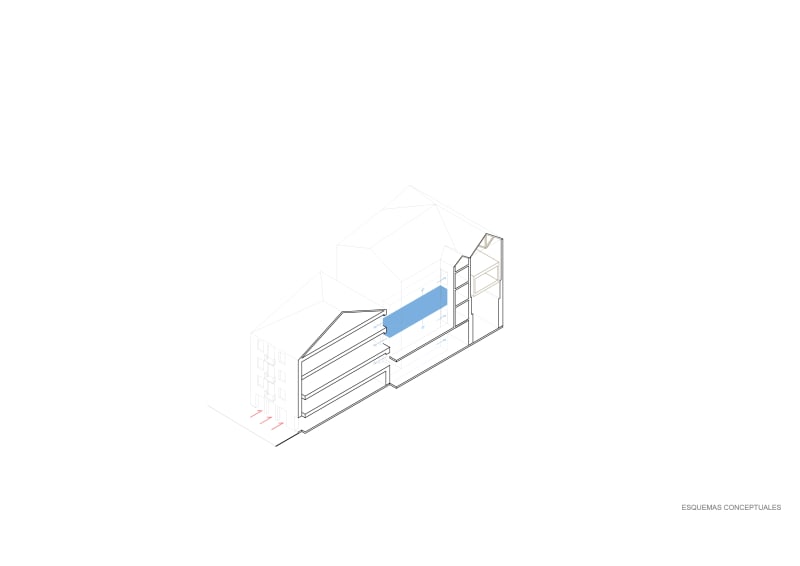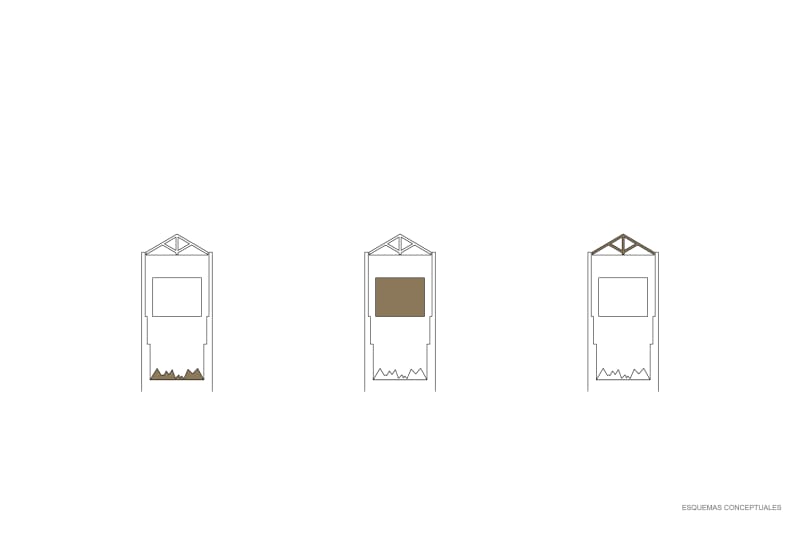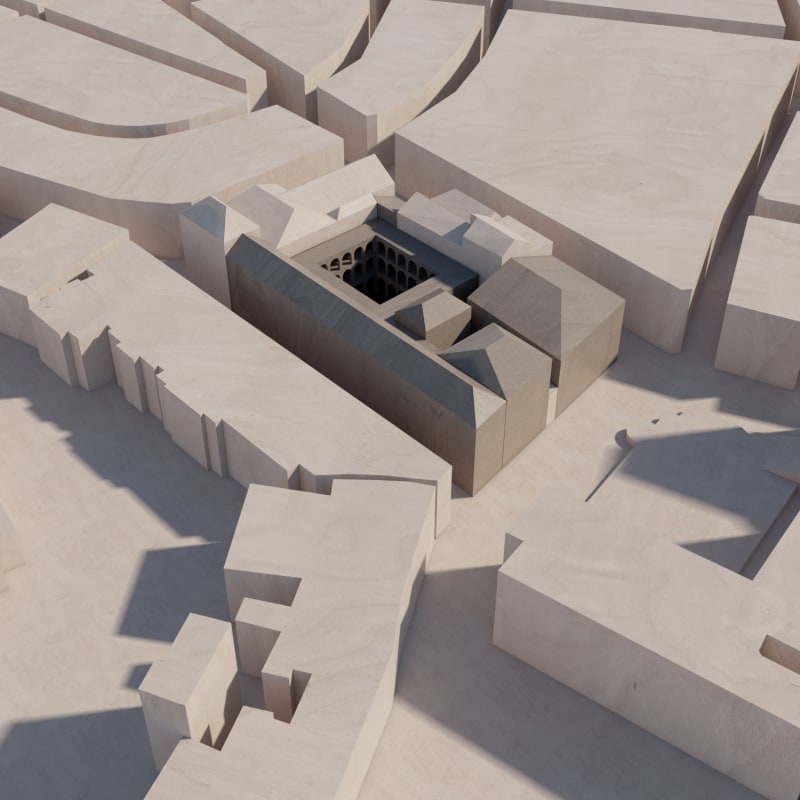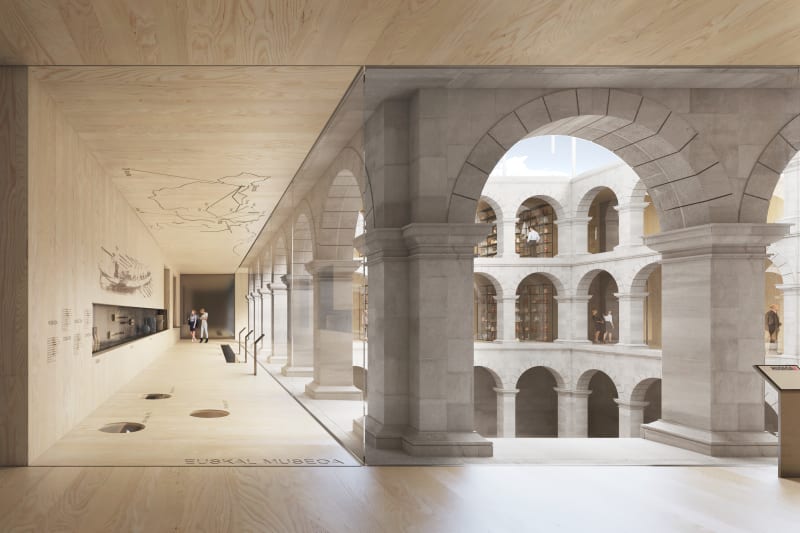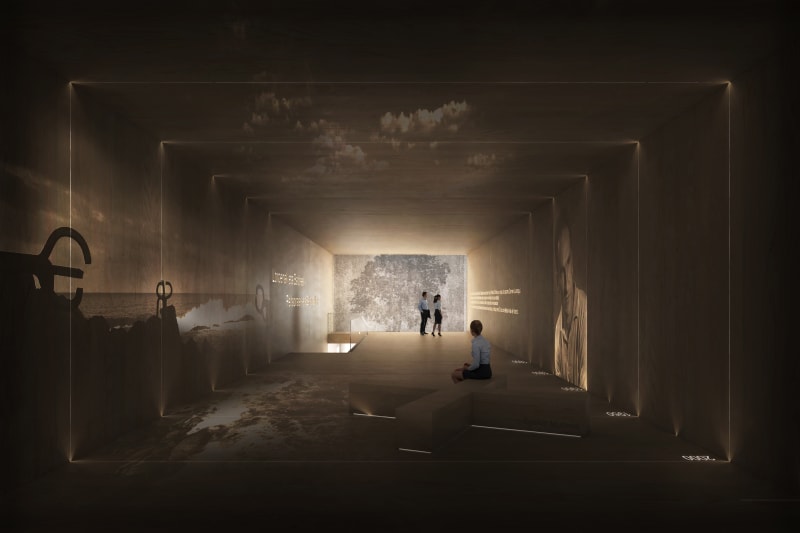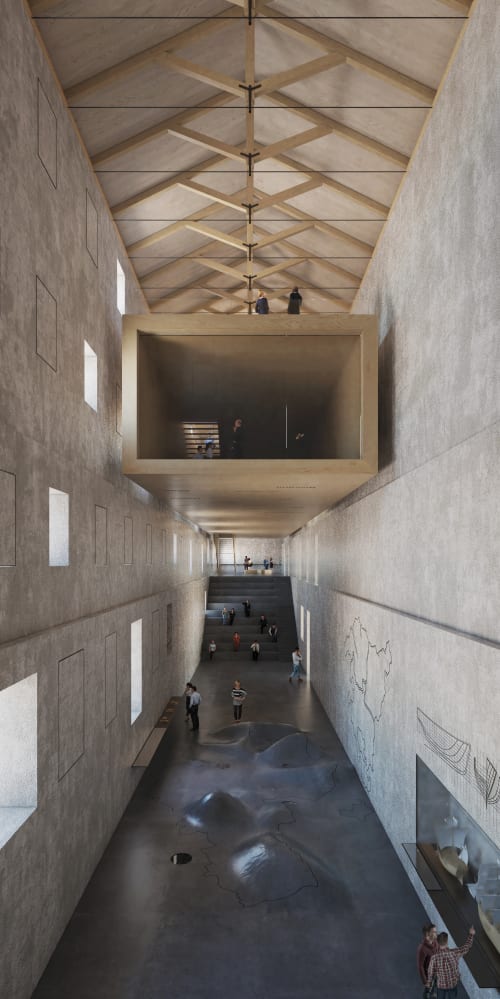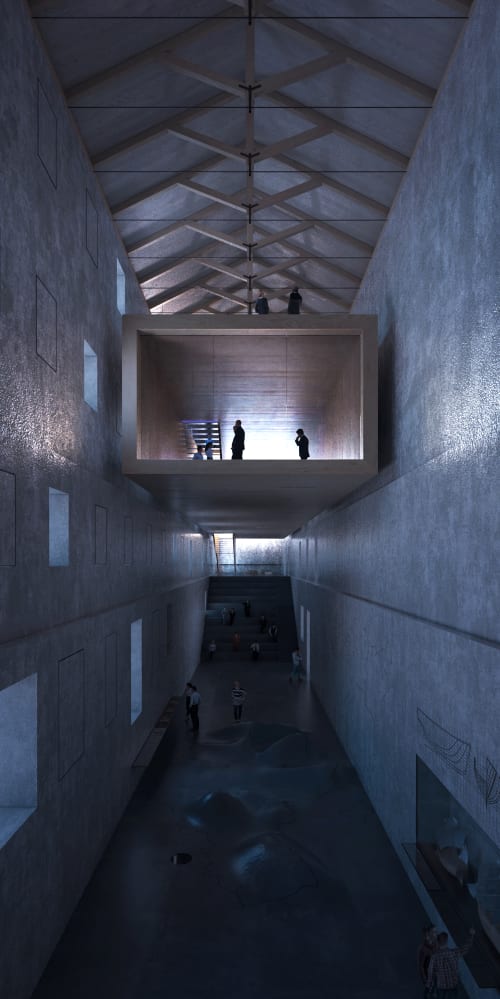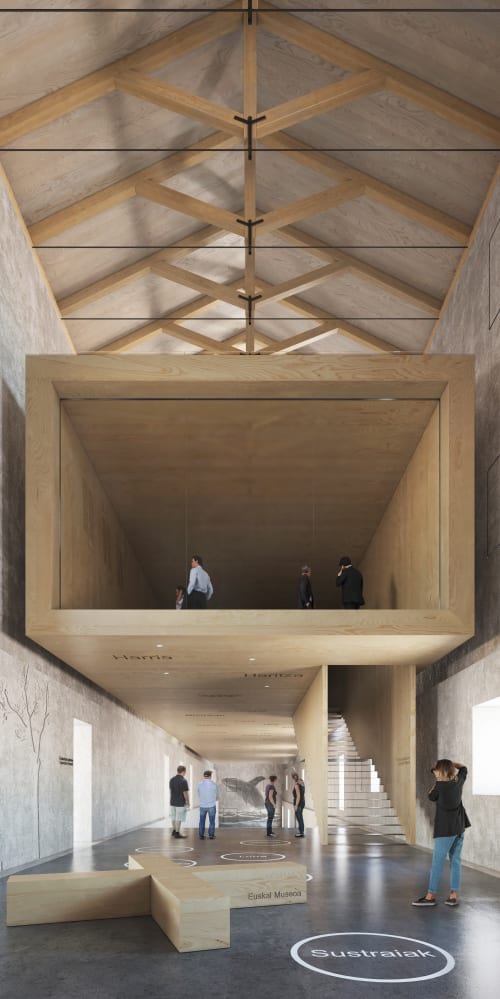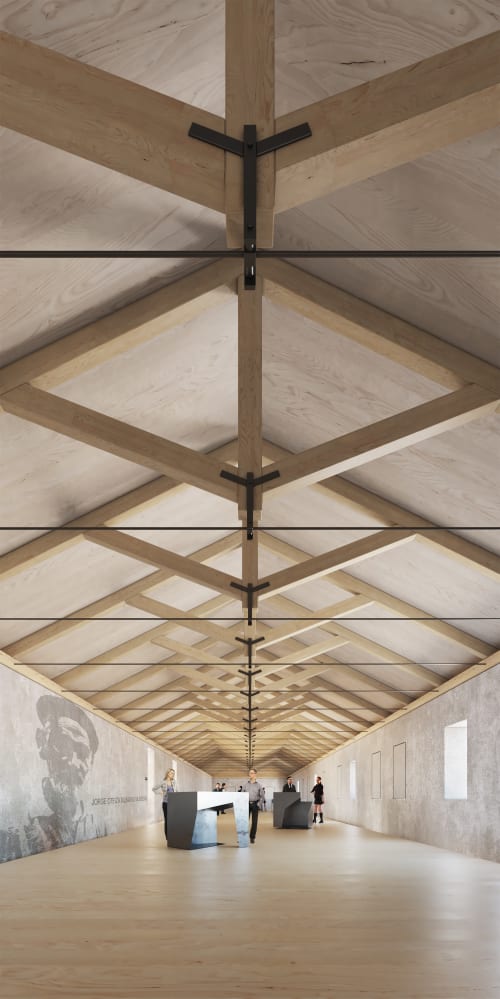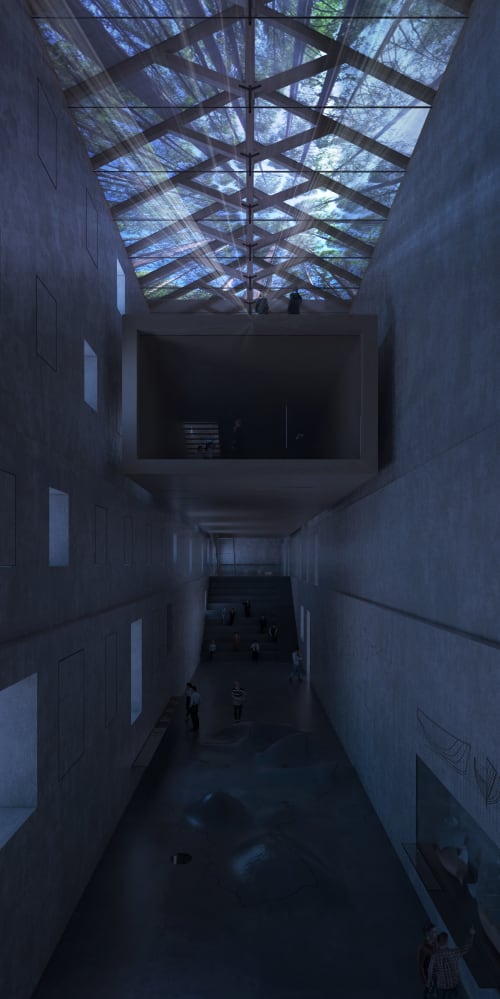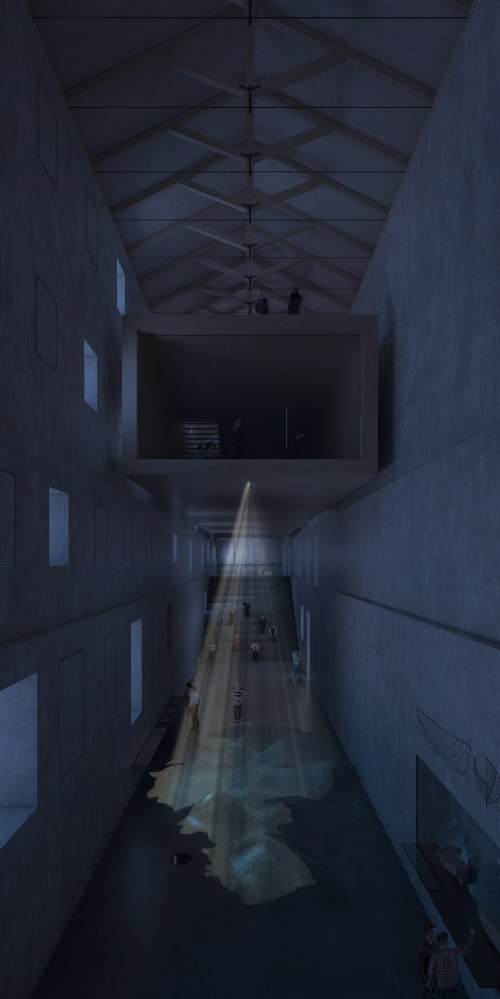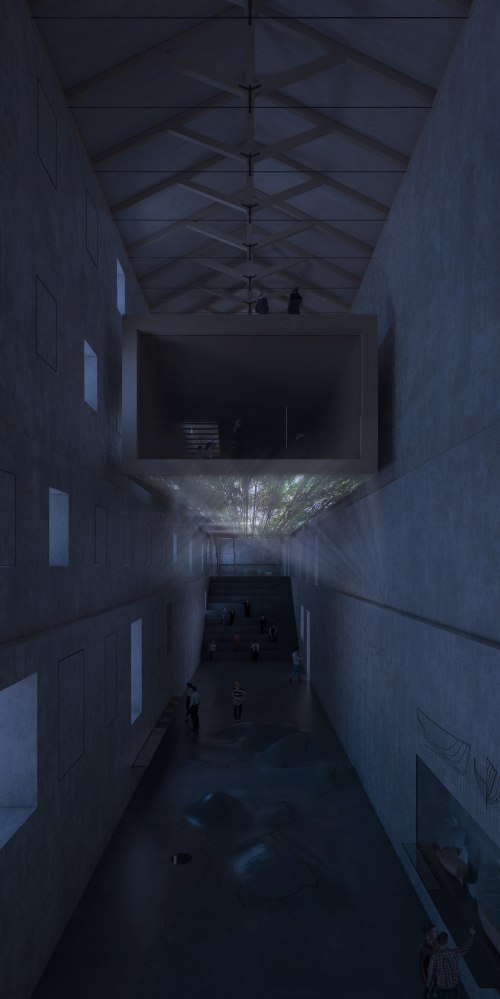The project proposes the action on a set of several historical buildings of more than 8,000 m2 that make up the Basque Museum of Bilbao.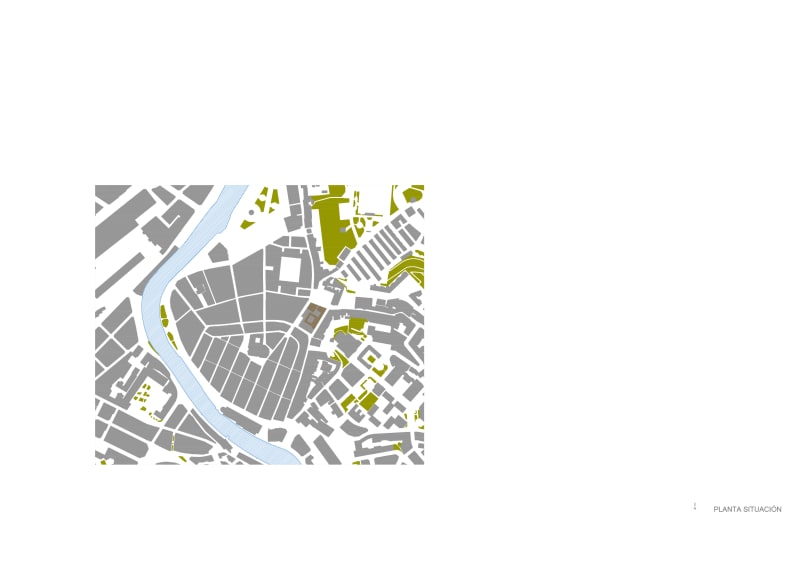
Recovery of the original structure of the historical building
The relevance of the original historical building is reinforced, recovering the continuous longitudinal corridor of the 17th century building. At the same time, the great space of the cloister is dignified as the true center of the exhibition space.
Connection of the 4 volumes
The image of 4 different buildings is preserved, but introduces elements of integration to favor maximum internal interrelation, in order to achieve maximum current and future functional flexibility.
Materials
The materiality of the new museum responds to the “tree · living organism” concept, the axis of the museum plan proposed in the competition rules. In this way, wood becomes the material reference element of the new restructuring, used extensively in the Basque construction tradition: farmhouses, boats, tools, etc. Wood condenses sustainable and bioclimatic reality.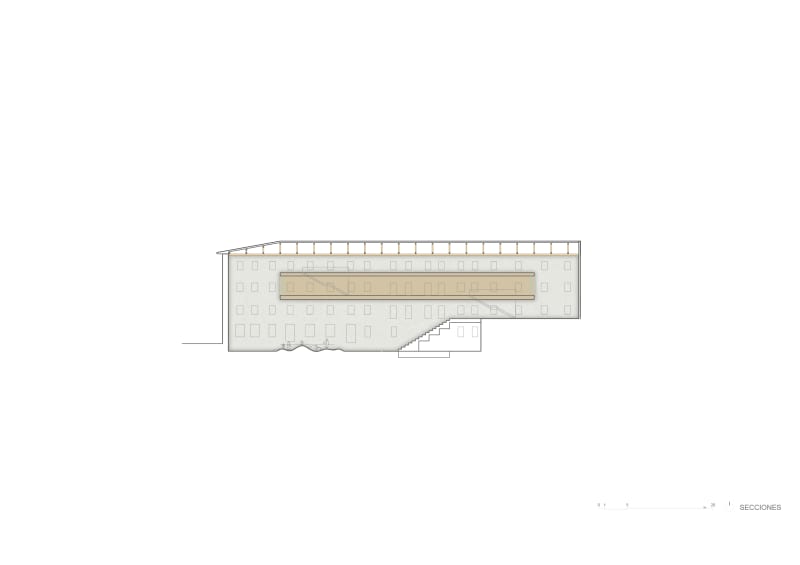
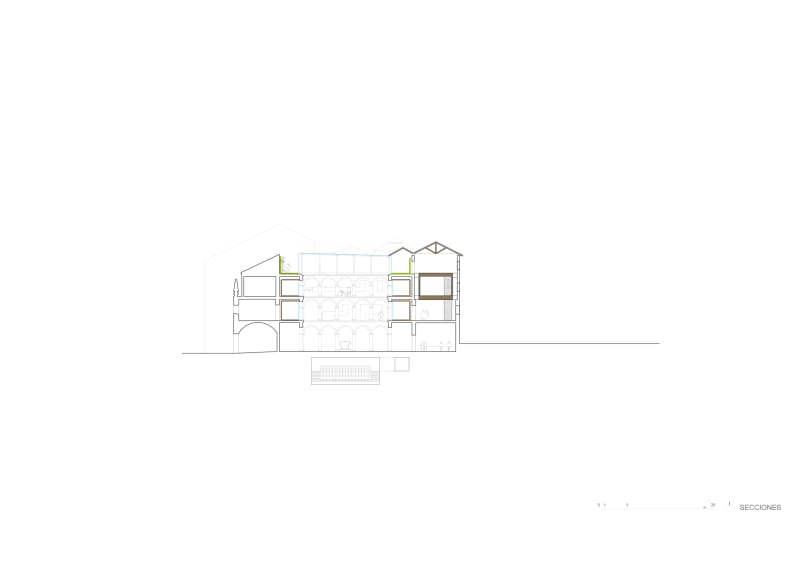
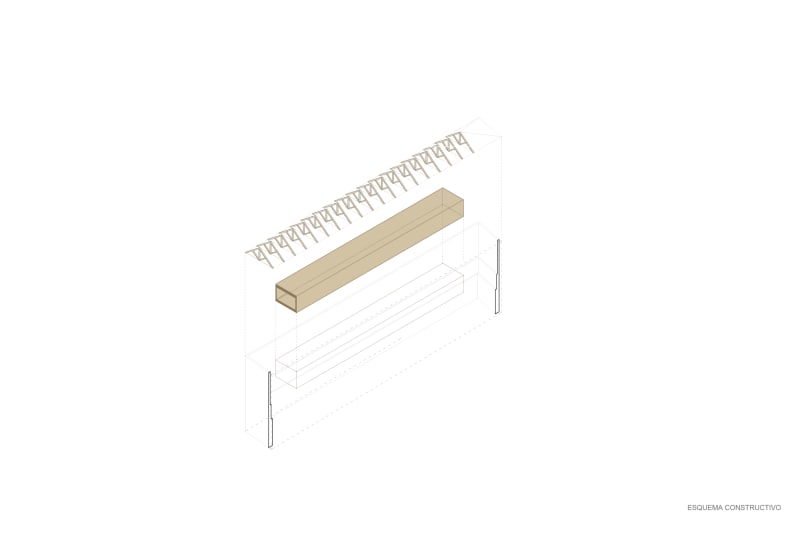
Museography
The museum strategy is based on the correspondence between the contents and the container. The introduction of a wooden structure as a “hollow log” and the re-structuring of the roof with large wooden trusses recall both the construction of the farmhouse roofs and the construction of the ships.
Immersive experience: Atmospheres and loopes
Museums usually have rooms where objects are exhibited under the same appearance, establishing a rigid and static relationship between space and content. In this case, each space is intended to host different “scenarios” in the form of the narrative loop. In such a way that the narration is varied and allows the multiplicity of stories in the same space.

